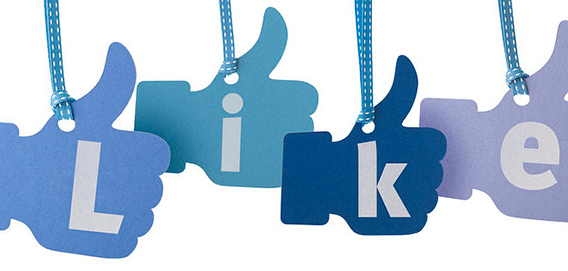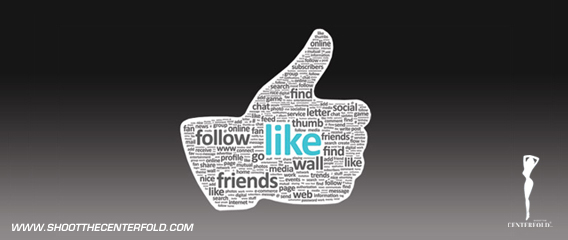The “Like” Dilemma and Your Photography
Social media platforms are still in their infancy with many popular ones being less than ten years old. Despite their youth, they have fundamentally changed the way people interact with one another. More interestingly, they have changed the way people think about themselves. As a society, we have either become much more narcissistic or perhaps we always have been and social media simply serves as a mirror from which many cannot avert their eyes.
Feeding this self-centered behavior is the “like” button. Posts ranging from the banal (“look what I had for breakfast!”) to feverishly impassioned rants are all desperately seeking validation in the form of the quantity of likes. The mindset appears to be that the more likes a post generates, the more “right” it is. However, that is a fallacy.
Photographers (and many artists in general) are particularly susceptible to this trap and falling for it can actually hurt their craft. It is understandable. We take a photograph and then want to share it with the world. Social media is great for this—it’s immediate and your work can be seen by hundreds to millions of people within the blink of an eye. Some of those people will hit the “like” button, click the heart, favorite or retweet, or whatever else the platform allows.
“The real problem for the photographer is that if he believes that the quantity of likes equates to the quality of the image, he’ll never improve his work.”But who are these people? Close personal friends? Acquaintances? Random people who you are following or are following you? And what is their intent with the validating click? Do they really love your work or are they just acknowledging your post? Just because a photo receives a lot of “likes” doesn’t make it good. And the real problem for the photographer is that if he believes that the quantity of likes equates to the quality of the image, he’ll never improve his work. There’s no incentive to improve since all the desired validation was created one like at a time.
Here’s a good example of this notion. I, like many fellow photographers, belong to a photography fan group where members are encouraged to not only post their work but to give some good honest feedback in the form of constructive criticism. The photographers range from novices to experts in the industry. I recall one particular photo from a photographer who seemed to be stuck in his skillset. His model selections were decent but his retouches were, to be blunt, awful. And to make matters worse, he posted composites that were poorly executed.
I offered some constructive criticism delivered in a very positive way. His response: “Well, what do you know? My photo got over 200 likes!” That’s when I shrugged and decided he’s beyond help, at least from me. Who were the 200 likes? Maybe they thought the model was pretty, maybe they always click like on every post, maybe it was that photographer’s personal friends and family. Who knows? But what I do know is that his work isn’t good now and he is not improving. And, I can safely say that I know who ISN’T one of the 200 likes: anyone who is an expert in the field or someone who is an influential decision maker (like a potential client).
“Never take it personally, take it with a grain of salt, and really look into who is giving you their opinion.”The Internet is an interesting place because it seemingly connects everyone to everyone else. And, if you want an opinion about your work (or, really, anything else) you’re sure to get one (or more). But it is critically important to do a few things when soliciting a critique or opinion: never take it personally, take it with a grain of salt, and really look into who is giving you their opinion. In some ways, the anonymity of the Internet allows those who would never speak up in real life to come alive with their expert opinions. Often photographers will debate a critique or, worse, give excuses for why the image resulted in a negative critique.

If someone has something negative to say about your work, and you see their point, take it as a learning experience and move upward and onward. But don’t take it personally, don’t let it stop you from moving forward with your work and certainly don’t make excuses for your mistakes. The ability to own your mistakes and recognize where you have failed or fallen short will take your photography skills to the next level. Also, consider the source of the critique. I keep hearing that everyone is entitled to their opinion and I suppose that’s true to an extent.
“I think it would be in my best interest to set my ego aside and listen to what he has to say. His eyes have seen more photographs than I may ever take in my career.”However, the truth is, some opinions are much more valid than others. For example, if I post a photograph and it gets 3000 likes but also a negative critique from Gary Cole (30-year Director of Photography at Playboy), I think it would be in my best interest to set my ego aside and listen to what he has to say. His eyes have seen more photographs than I may ever take in my career. His opinion means something and for me to ignore his suggestions or critiques would be doing me a disservice. Relying on the words of encouragement (or the ethereal “likes”) from those whose skillsets aren’t as developed as mine may feel good on an emotional level but they’re certainly not going to take me and my photography to the next level.
On the flipside, if I get a negative comment or harsh critique from someone, I’ll typically look at their work. Sometimes those who are speaking loud and proud aren’t coming from a position of excellence or real experience and I tend to question any validity their perspective may have.
The beauty of social media is that is does give us an unprecedented avenue for connections than ever before. Now we can reach out to those who were beyond our grasps in the past. I encourage every photographer (or any artist, for that matter) to seek out critiques in order to grow and develop their craft. But I also highly encourage them to find real mentors or solicit the opinions of those who really have something to offer in the way of an expert opinion. Don’t get discouraged by inexperienced opinions and, most importantly, don’t let the sea of “likes” sweep you away from growing and developing into the artist you wish to become.
© 2016 Copyright ShootTheCenterfold.com. All rights reserved.
























I couldn’t agree more